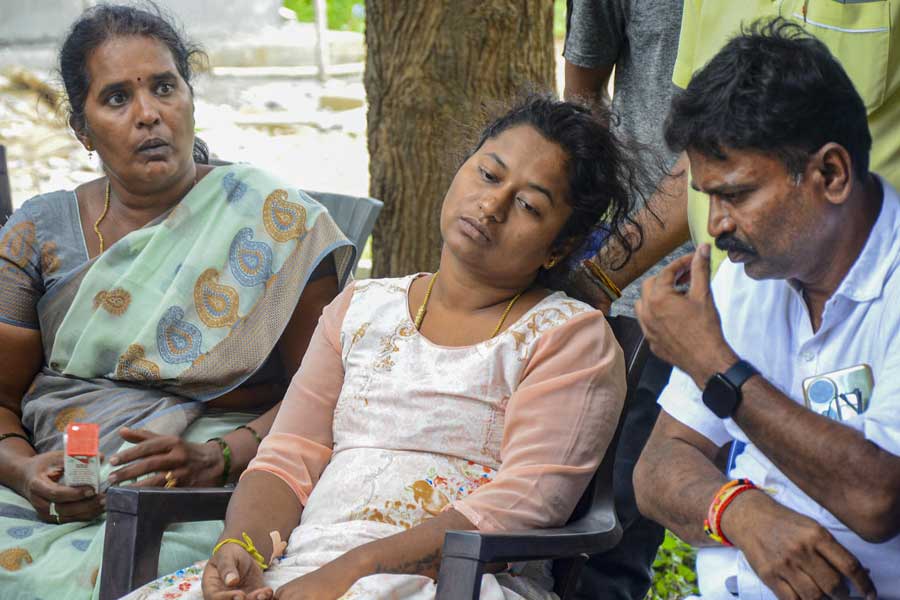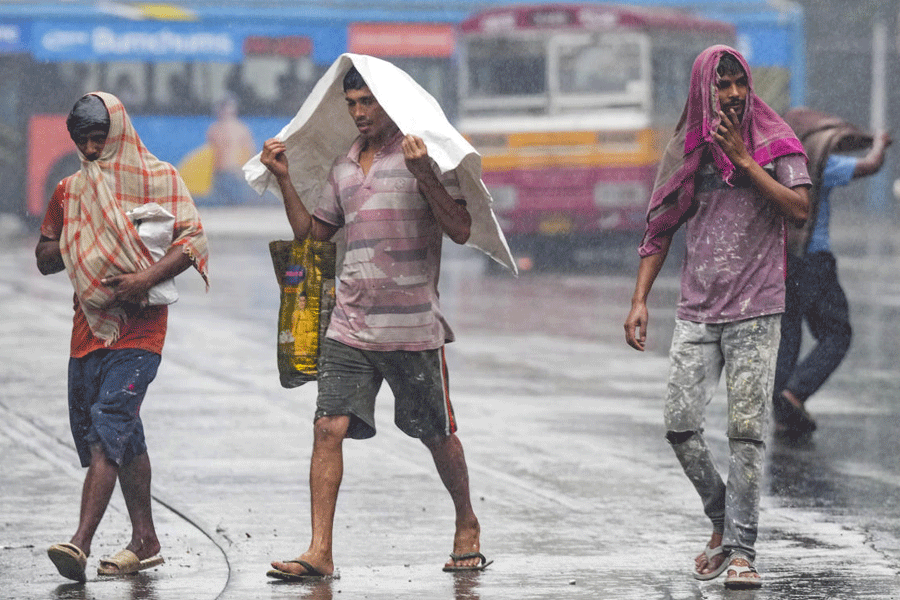 |
| GOLDEN DAYS: (Above) A picture of a programme at India Club, Colombo, on May 27, 1932, signed by Tagore; Pinakin Trivedi is seated beside Tagore and next to him is Shantidev Ghosh playing the dilruba. Tatu and others in costume ready to stage Natir Puja in Calcutta in December 1931; (Top left in the display) Khuku and Tatu, probably with youngest sister Mithu, (January 1, 1932); (centre) Artist Sudhir Ranjan Khastagir in Bombay (1933); (bottom right) Khastagir, who was very close to Pinakin Trivedi signed the photograph |
His father had a Santiniketan connection. Not only was he in close proximity with Rabindranath Tagore but was also a member of his Ganer Dal. Dev Kumar Trivedi, former finance secretary to the government of Delhi, is today in search of a family of two sisters Khuku and Tatu, also part of the group, to hand over some articles that might be of great sentimental value to them.
The sisters Khuku and Tatu, both from Ranchi, studied in Santiniketan during 1931-32. Their father was into service while their mother was a schoolteacher. They had a younger sibling Mithu and lived in Doranda.
They also had an uncle who was in Calcutta and had three sons — Lalita, Amita and Sunu.
Khuku, who was a singer, loved poetry. She would often translate Shelley’s poems into Bengali. Tatu was a good dancer and when Tagore went to Calcutta with a troupe in December 1931 to stage the famous dance drama Natir Puja, where he played Upali Bhikshu, she played Nati.
Trivedi’s father, Pinakin Trivedi, had a strong bond with Santiniketan. A great devotee of the Nobel laureate, Pinakin stayed in Santiniketan from 1927 to 1933. He was initially a student there and gradually enrolled as a research scholar. He later toured Ceylon (now Sri Lanka) with Rabindranath Tagore in May 1934 as a member of Ganer Dal — their singing group from Santiniketan.
He moved to Bombay (now Mumbai) in 1954 and became widely known as an educationist, writer, poet and commentator. He also sang for the All India radio and left behind an enviable collection of documents.
This included original paintings by masters such as Nandalal Basu, Binode Behari Mukherjee, Sudhir Ranjan Khastagir and Sukumar Deuskar. The collection also boasted a hand-written magazine with one of Tagore’s poems in his own handwriting on the front page.
Trivedi also has in his possession his father’s 800-page personal diary penned in Gujarati that captured the life and happenings of Santiniketan in those times.
An autograph book was also a part of the documents, which not only contained many signed messages by Tagore himself, but also of other Indian and international dignitaries, who visited Santiniketan during that period.
A few hundred photographs taken by Pinakin serve as a commentary of life then, several of them signed by Tagore. Those include some pictures of the Ranchi sisters’ when they went to Calcutta to perform Natir Puja.
Trivedi wants to hand over these photographs to the sisters’ family to whom they “must have great sentimental value”.
As far as other articles are concerned, all will be given away to institutions such as the Visva Bharati. “I would like to give the documents to institutions because his work is linked with Santiniketan and I am certain that it would be useful to scholars. I want them to get display and be accessible to people. This is my primary objective,” Trivedi said over the phone from New Delhi.
Trivedi feels that his father was culturally a Gujarati and a naturalised Bengali.
“He learnt Bengali and started participating in Rabindrasangeet actively. It was then that he was included in Ganer Dal, the core group of outstanding singers. Another prominent member of the group was Shantidev Ghosh,” said Trivedi.
He believes that his father’s collection and work, most of which is in Gujarati, is precious. He is all set to document them digitally. Once complete, he will consider donating the same to an appropriate body, he said.
Meanwhile, Trivedi is trying to locate the families of the sisters Khuku and Tatu, whose photographs are part of his father’s collection and his only wish is to hand them over to whom they belong.










